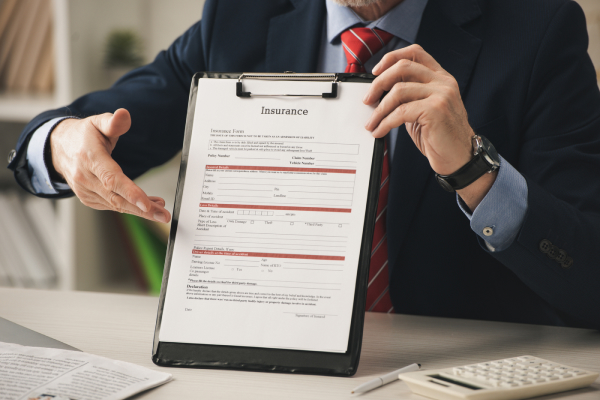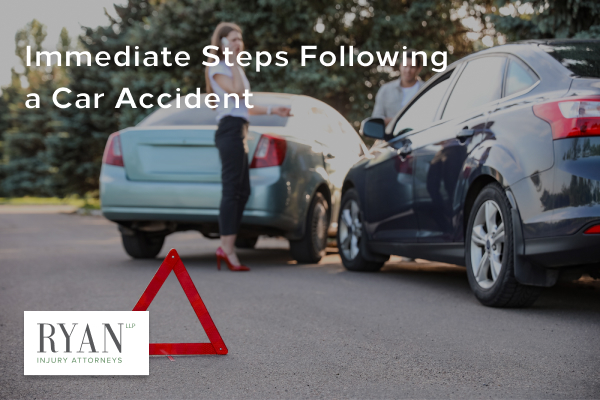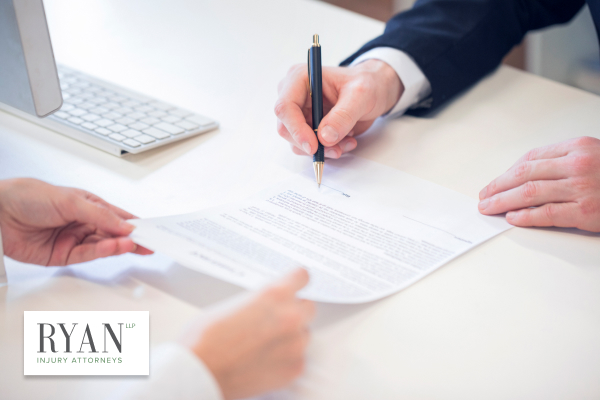
Dealing with car accidents can be stressful, especially when handling the insurance claims that follow. After an accident, you may face physical injuries and financial burdens caused by medical bills, repair costs, and potential loss of income.
Ryan LLP understands these challenges and is here to help you navigate the insurance claims process effectively. We aim to ensure you receive fair compensation from the insurance companies involved.
Car insurance companies try to pay out as little as possible. However, it would help if you recovered all the compensation you're entitled to through your auto insurance claim. What do you need to know? Contact us for a free consultation to review your insurance or personal injury claims.
An insurance claim is a request you file with an insurance company for financial compensation after a car accident. The insurance company reviews the claim first.
Then, if they decide the policy covers the claim, you will get paid according to that policy. This process is essential for recovering financially from a car accident, as it helps cover car repair shop costs and medical treatments.
Filing an insurance claim involves several steps, each important for covering damages. It's essential to understand the terms of your policy and what is covered under your insurance.
Misunderstandings about coverage can lead to unexpected out-of-pocket expenses. Knowing the specifics of your policy helps you advocate for your rights after a crash.
Submitting an insurance claim after a car crash ensures you receive financial support for losses incurred due to the accident. Whether it's damage to your vehicle, medical expenses, or other associated costs, an insurance claim can help alleviate the financial strain.
Without filing a claim, you might have to cover all these costs out of your pocket, which can be financially overwhelming.
Filing an insurance claim also sets the documentation and assessment of the accident in motion, which is required for legal purposes. It helps create a formal record of the event and the extent of the damages, which can be vital if there are disputes about liability or compensation.
In addition, insurance claims can provide coverage for legal fees if the crash results in litigation. This protection is necessary for effectively defending your rights and interests.

Understanding your auto insurance coverage is essential for knowing what you can claim after a rollover accident. Each policy has different terms and coverage limits, which determine how much you can receive in compensation. Before filing a claim, it's important to be familiar with your policy's specifics.
Liability only. Liability insurance covers damages and injuries you cause to others if you are at fault in a crash. It does not cover repairs to your vehicle or your medical costs. Most states require drivers to have at least liability coverage.
Collision. Collision coverage pays for damage to your vehicle if you hit another car or object, no matter who is at fault. This type of coverage is vital if you have a newer vehicle or are still paying off your car loan. It typically comes with a deductible you must pay before coverage kicks in.
Comprehensive. Comprehensive insurance covers damage to your vehicle caused by events other than collisions, such as theft, vandalism, or weather events.
Like collision coverage, comprehensive coverage usually requires a deductible. This coverage is especially important for drivers in areas where crime is more common or severe weather events are frequent.
Understanding your car insurance policy can be a bit confusing, but it helps knowing your coverage limits and what you're entitled to after an SUV accident.
Your policy document outlines all the coverage details, including deductibles, limits, and exclusions. It's important to read this document carefully and ask your insurance agent to clarify any points you don't understand.

After a car accident, you may wonder whether to file a claim with your insurance company or the other driver. If the other driver was at fault, consider filing a third-party claim with their insurer.
However, filing with your own company can be faster, and they will seek reimbursement from the other driver's insurance through subrogation.
Accurate and comprehensive documentation is essential for a smooth insurance claim submission. You'll need to provide your insurance company with a copy of the police report, photos of the crash site and all cars involved, and any medical records if injuries were sustained. These documents help substantiate your claim and ensure you receive appropriate compensation.
Dealing with insurance adjusters is an important part of the claims process. Adjusters must review the damage and determine the amount the insurance company should pay. They review all the documentation you provide, so it's important to be thorough and precise in your submission.
Insurance adjusters are skilled negotiators trained to minimize the amount the insurance company pays out. It's important to be prepared and informed about your claim and the value of your damages.
Knowing the details of your policy and the extent of your coverage helps you negotiate more effectively. Be polite but firm, and remember, you don't have to accept the first offer they make.
At Ryan LLP, we understand how overwhelming dealing with insurance claims can be, especially after a distressing event like a car accident.
Our experienced attorneys are here to guide you through every step of the insurance claims process. We ensure that all necessary documentation is in order and that you are fairly represented in negotiations with insurance adjusters.

If you've been involved in a car accident, don't navigate the insurance claims process alone. Contact us today to schedule a free consultation with one of our expert Cleveland car accident lawyers. We'll review your case, discuss your legal options, and explain how we can help maximize your compensation.